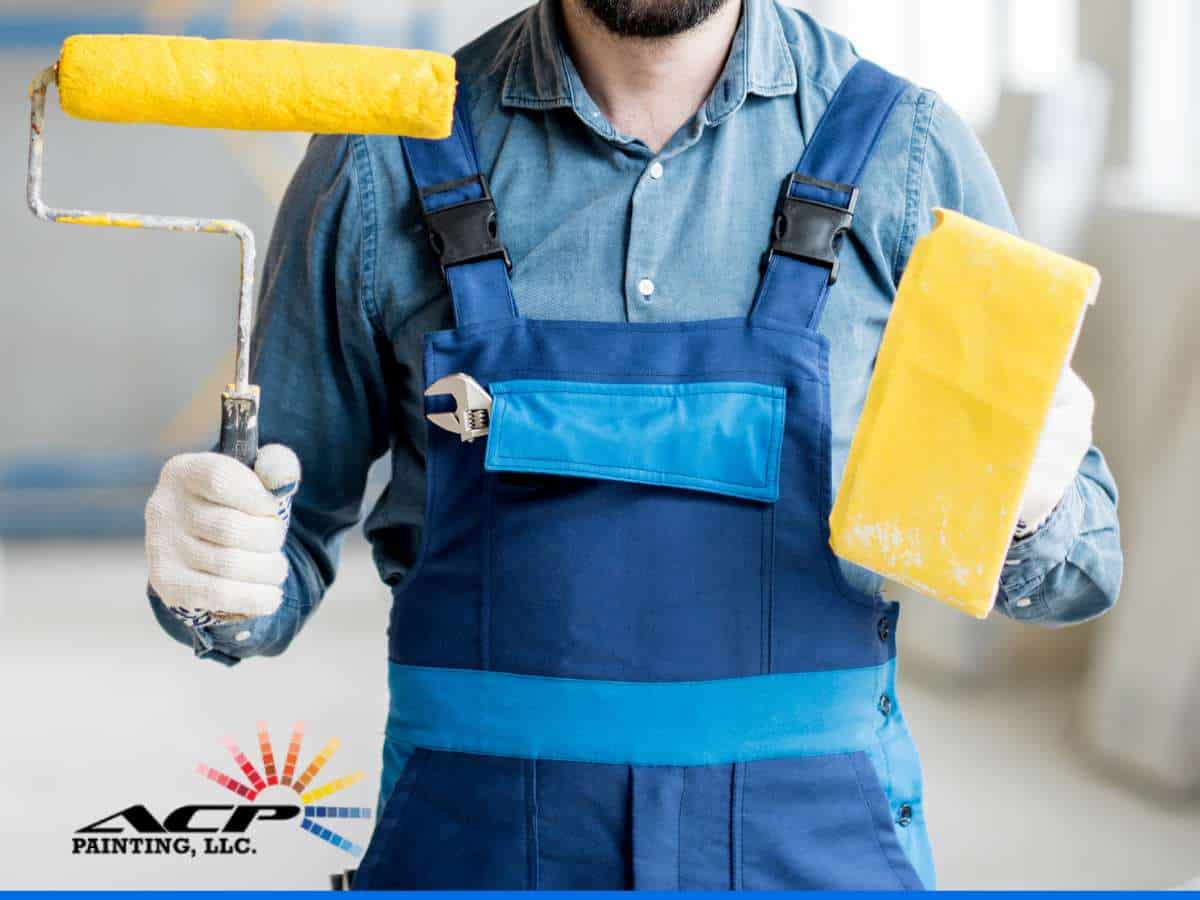How To Determine Whether You Need Commercial Or Industrial Painting For Your Project
Did you know that painting a home can significantly boost its value? It’s actually one of the most cost-effective upgrades you can make. According to research published by OpenDoor, painting the interior can deliver a return on investment (ROI) of up to 107%, while exterior painting can yield around 55%.
After all, when planning a large-scale painting project, one of the most important decisions you’ll need to make is whether you require industrial or commercial painting services. While both serve non-residential spaces, they differ significantly in terms of technique, materials, scope, and objectives.
Understanding these differences can help you ensure your project runs smoothly, stays within budget, and achieves your desired finish. In this article, we’ll explore the distinctions between industrial and commercial painting, their applications, and how to determine which service is the best fit for your project.

What Is Industrial Painting?
Industrial painting focuses on durability and functionality. It’s designed to protect structures, machinery, and surfaces exposed to extreme conditions such as moisture, heat, chemicals, or heavy wear and tear. This type of painting is commonly found in environments like:
- Factories and manufacturing plants, where surfaces endure constant mechanical stress.
- Warehouses with heavy equipment and constant movement.
- Power plants and chemical facilities, exposed to heat, fumes, and corrosive substances.
Unlike decorative finishes often applied by house painters, industrial painting involves specialized coatings such as epoxy, polyurethane, or zinc-rich primers that offer protection against corrosion, abrasion, and chemical exposure. The goal is not about aesthetic value but about preserving structural integrity over time.
Industrial painters are often trained to:
- Handle hazardous materials and adhere to strict safety standards.
- Prepare surfaces using techniques like sandblasting, pressure washing, or abrasive cleaning.
- Work in high-risk environments, such as confined spaces or elevated structures.
Every step, from preparation to application, is optimized for long-term performance in demanding industrial settings.
What Is Commercial Painting?
Commercial painting focuses more on visual appeal and customer experience. It’s tailored for spaces where appearance plays a key role in client perception and brand image. Common applications include:
- Retail stores and restaurants, where color and ambiance influence consumer behavior.
- Office buildings aiming for a clean, professional look for employees and visitors.
- Hotels, schools, and public venues, where maintenance and consistency are key.
While durability still matters, especially in high-traffic zones, commercial painting emphasizes variety in color palettes, finishes, and design flexibility to align with branding or interior decor.
To clarify, commercial painters are often expected to:
- Work around business hours, including evenings or weekends, to avoid disruption.
- Coordinate with other contractors or project managers during renovations.
- Maintain cleanliness and safety in customer-facing areas throughout the project.
The result is a polished, welcoming environment that reinforces the identity and function of the commercial space.
Key Differences Between Industrial & Commercial Painting
While both types of painting require skill and experience, the differences are quite significant:
- Purpose: Industrial painting is primarily functional, while commercial painting is aesthetic.
- Materials: Industrial projects often use specialized coatings for protection, whereas commercial jobs usually use standard latex or acrylic paints.
- Surface Prep: Industrial painting involves extensive surface preparation and environmental considerations.
- Regulations: Industrial painters must comply with more stringent safety and environmental guidelines.
- Work Environment: Industrial settings tend to be more hazardous and may involve working around heavy machinery or toxic substances.
- Project Timeline: Commercial painting projects typically have tighter deadlines due to the need to keep the business operational.
Understanding these differences can help property owners avoid delays, unexpected costs, or dissatisfaction with the final result.
Where Are Industrial & Commercial Painting Services Used?
To determine the right service, it’s essential to consider where and how the paint will be used.
The industrial painting applications are:
- Oil refineries and chemical plants.
- Food processing facilities.
- Water treatment plants.
- Steel structures, tanks, and pipelines.
- High-temperature environments.
- Structural steel and concrete exposed to outdoor elements.
On the other hand, commercial painting applications are:
- Office buildings and coworking spaces.
- Malls and retail stores.
- Schools and universities.
- Gyms and fitness centers.
- Medical offices and clinics.
- Hotels and hospitality businesses.
Each environment has unique needs. For example, a medical clinic may require antibacterial paint in examination rooms, while a warehouse may need anti-slip coatings on its floors.
The Purpose Of Industrial & Commercial Painting Projects
While it’s easy to assume that painting is just about changing a surface’s color, the goals vary depending on the context.
- In industrial settings, the goal is long-term protection. Paint serves as a barrier against corrosion, weather, chemicals, and physical wear. A high-performance coating can extend the life of machinery or infrastructure by years.
- In commercial environments, the primary goal is to create a pleasant space that attracts customers, reassures clients, or motivates employees. A well-painted storefront or lobby can significantly influence a person’s first impression of your business.
A fresh coat of paint in an office can even boost employee morale and productivity, making color selection and finish more critical than one might expect.
Working with professional painters who understand the importance of both durability and design is key to achieving the intended results.
Choose The Right Paint For Your Needs
If you’re still unsure whether your project falls under industrial or commercial painting, ask yourself the following questions:
- What is the environment like? If your space is subject to chemicals, heat, or heavy equipment, industrial painting is likely the better choice.
- What’s the main objective? Are you trying to protect equipment, extend the life of a surface, or make the area more visually appealing?
- Who will be using the space? Public-facing spaces benefit from a clean, stylish appearance, while industrial areas prioritize safety and functionality.
- Do regulations apply? Some industries have strict guidelines about the types of coatings and safety practices that must be followed.
It also helps to work with local painters who understand the climate and environmental conditions of your area. A professional in Arizona, for example, might recommend UV-resistant paints for outdoor commercial surfaces that face prolonged sun exposure.
Another factor to consider is budget. Industrial coatings can be more expensive upfront but offer long-term savings by reducing maintenance and replacements. Commercial painting may have a quicker turnaround and lower cost per square foot but may require more frequent touch-ups.
No matter the scale or complexity of your project, it’s important to choose experienced painting contractors who specialize in the type of painting you need. Don’t hesitate to ask for portfolio samples, timelines, safety credentials, or warranty information when comparing providers.
Transform Your Space With Expert Industrial Or Commercial Painting In Arizona
Both industrial and commercial painting play crucial roles in maintaining and enhancing non-residential spaces. While they share some common tools and techniques, the differences in goals, materials, environments, and expertise are substantial. By understanding these factors, property owners can make informed decisions that protect their investment and support their business objectives.
Whether you’re revitalizing a commercial storefront or protecting industrial machinery, the right painting service can make all the difference.
Ready to transform your space with expert care and precision? Trust ACP Painting for your next commercial or industrial project. Our team of professional painters in Arizona delivers high-quality results tailored to your specific needs, timeline, and budget. Contact us today!

Maricopa
20987 N John Wayne Pkwy
Maricopa, AZ 85139
Phone: 480-785-6323
Scottsdale
8350 E Raintree Dr Ste 215,
Scottsdale, AZ 85260
Phone: 480- 764-3735



